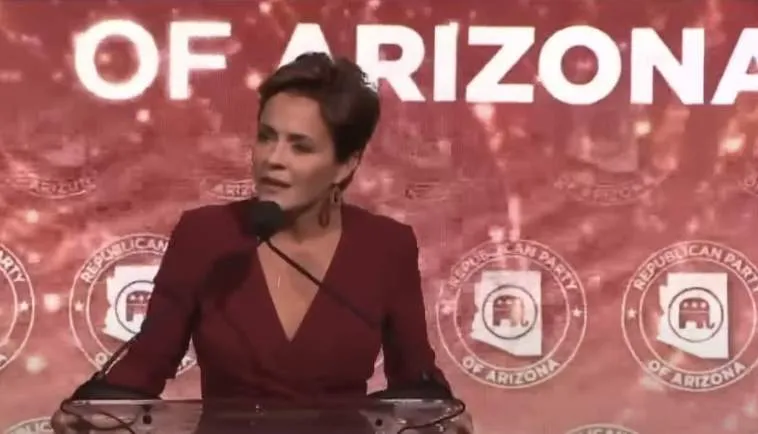(Just The News) With Kari Lake’s legal complaint alleging systematic signature verification failures in Maricopa County remanded by the Arizona Supreme Court to trial court, closer examination of the signature verification software used by the county reveals a strikingly low threshold for signatures to qualify as “high-confidence” matches.
Since falling about 17,000 votes short in the 2022 Arizona gubernatorial election to Democrat Gov. Katie Hobbs, Lake has continued to contest the election results in court, arguing that there were ballot chain of custody and signature verification issues in addition to thousands of Republican voters disproportionately disenfranchised on Election Day, when voting machine errors occurred in nearly 60% of the voting centers in Maricopa County. Lake has requested that the election results be invalidated or that she be declared the winner.
Last week, the Arizona Supreme Court remanded Lake’s claim alleging massive signature verification failure to the trial court, ruling that because Lake is challenging the failure to adhere to current policy rather than the policy itself, her suit was not filed too late, as the lower court had found in dismissing her case. The former candidate must “establish that ‘votes [were] affected “in sufficient numbers to alter the outcome of the election”‘ based on a ‘competent mathematical basis to conclude that the outcome would plausibly have been different, not simply an untethered assertion of uncertainty,'” the state’s high court ruled.
According to 2020 emails between Maricopa County officials and an employee of the county’s election technology vendor, Runbeck Election Services, the election firm’s Verus Pro application for signature verification ranks signature matches on a scale of 0 to 100. However, only scores “lower than 10” are “not marked as Accepted by Verus Pro,” according to an email from a Maricopa County official, which the county provided to then-Arizona Attorney General Mark Brnovich after a public records request.
When Maricopa County was testing Verus Pro for the 2020 general election, county election official Rey Valenzuela called the rollout of the software a “sh-t show” in an October email to Runbeck.
A July 2022 contract extension between Maricopa County and Runbeck explains how the signature verification program scores signature matches.
Signatures sent to Runbeck “are assigned a score,” reads the contract, “based on the verification; signatures with a score of 10 or higher are routed to a high-confidence manual signature verification queue, and signatures with a lower score are routed to a low-confidence signature verification queue.”
The contract was obtained through a public records request and given to former Arizona Assistant Attorney General Jennifer Wright after she left office. Wright shared it with Just the News.
Maricopa County “won’t admit to using the software,” but the contracts show it does, Wright said.
Some additions in the 2022 contract, which extends a 2020 agreement, include “the ability to turn Signature Verification on or off.”
Under the performance criteria stipulated in the extension, Verus Pro was bound to process “at least 3,600 signatures/hour” and “correctly assess if a signature is present on at least 80% of inbound images” of early ballot envelopes.
Signature verification applies to early ballots, when voters’ signatures on the ballot envelopes are checked against signatures in voters’ files to ensure they match. There were more than 1.3 million early ballots cast in Maricopa County’s 2022 general election.
Under Arizona law, the “county recorder or other officer in charge of elections shall compare the signatures thereon with the signature of the elector on the elector’s registration record.”
Duly authorized election officials are responsible for resolving any discrepancies. “If the signature is inconsistent with the elector’s signature on the elector’s registration record,” reads Arizona statute 16-550, “the county recorder or other officer in charge of elections shall make reasonable efforts to contact the voter, advise the voter of the inconsistent signature and allow the voter to correct or the county to confirm the inconsistent signature.”
The statute doesn’t mention using third parties to complete signature verification or curing, Wright told Just the News Friday.
Runbeck used to have Verus Pro listed on its website, but it doesn’t appear to anymore, at least when using the search tool. Runbeck told Just the News that a website update may have caused a previous website link to Verus Pro to no longer work. Runbeck has yet to provide Just the News with a new link to Verus Pro on its website.
According to a 2020 contract and video posted by Maricopa County, the county used Verus Pro in that election. In the video, the bottom of an election worker’s screen reads “low confidence” for a signature.






